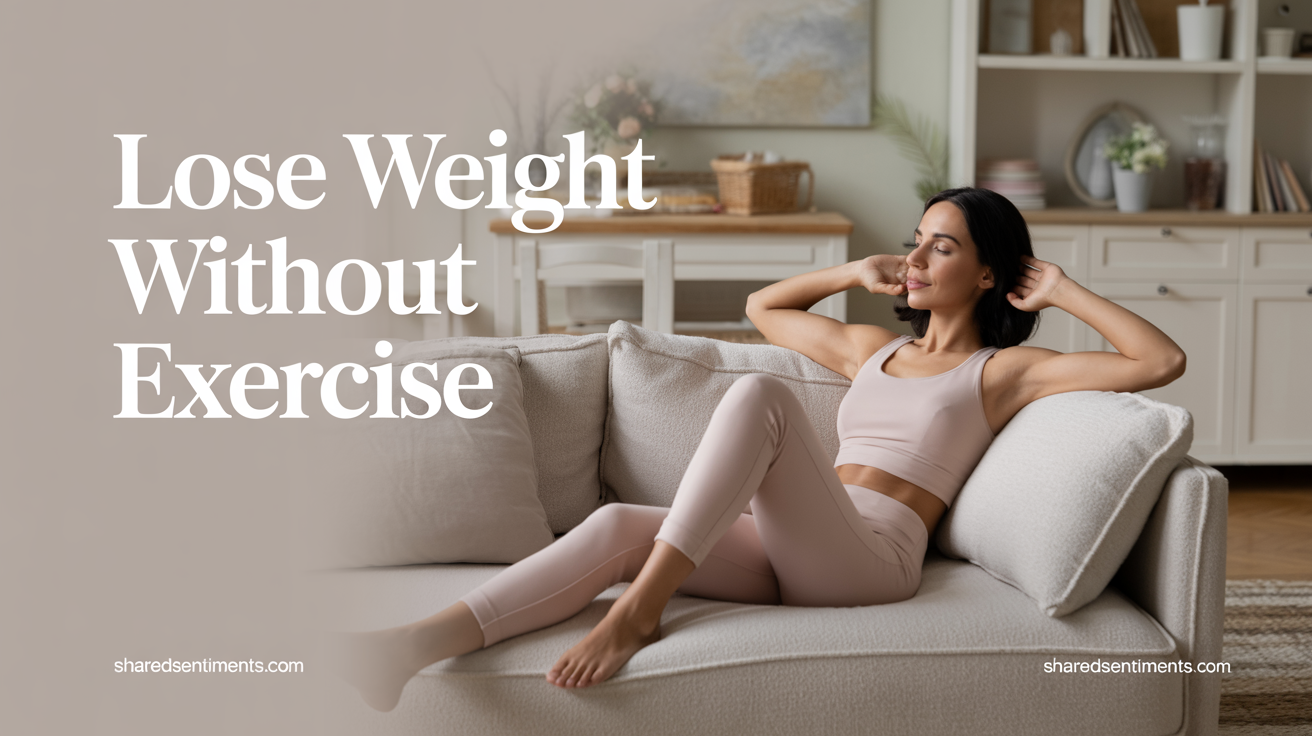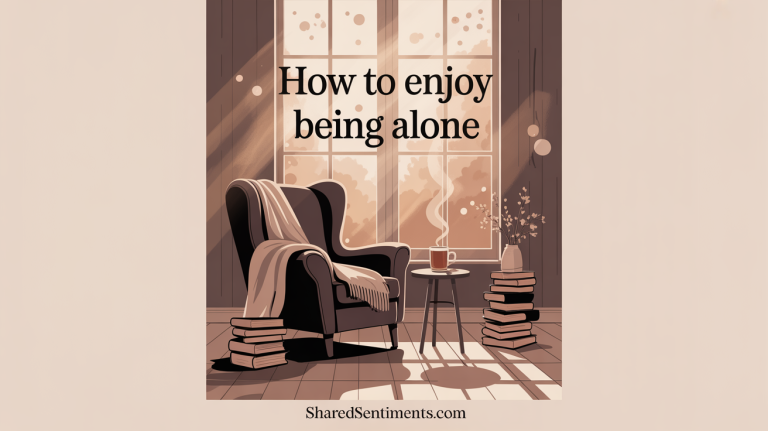How To Lose Weight Without Exercise (11 Powerful Ways)

So you want to lose weight, but working out just isn’t your thing?
Or maybe life is packed with so much stuff that finding time to exercise feels impossible.
I get it. Whether it’s lack of time, low energy, or just not enjoying sweat and sore muscles—I’ve been there too.
Here’s the truth: I lost 22 pounds, and yes, I did work out during that time. So I won’t pretend exercise didn’t help speed things up.
But there were plenty of times when I couldn’t stick to my workouts. Even then, I still made progress. That’s because I had a few solid habits that kept me on track.
And don’t just take my word for it. When you look at how weight loss actually works, you’ll see that it’s possible to lose weight without exercise.
Can You Lose Weight Without Exercise?
Let me tell you about something called the 80/20 rule in fitness.
It means that about 80% of your results come from what you eat, while only 20% comes from working out.
So if you focus on eating better and making a few small changes in your daily routine, you can still lose weight—even if you don’t hit the gym.
Is it doable? Yes. Totally.
But here’s the catch: without workouts, you’ve got to be more disciplined with your eating.
That’s the hard part, right? Sticking to a clean diet isn’t easy these days. And most of us aren’t trying to become bodybuilders—we just want to feel better and look healthier.
The good news? You don’t need extreme diets or crazy routines. Slow and steady habits work best.
The Key to Losing Weight Without Exercise
There’s one thing that helped me the most—and it’s not a secret supplement or some weird trick.
It’s mindfulness.
This one habit changed everything for me. It helped me stay aware of what I was eating, how I was feeling, and what my body really needed.
If you can practice this one thing daily, it’ll guide your whole weight loss journey.
Let’s talk more about how it works.
How To Lose Weight Without Exercise (11 Powerful Ways)
1. Stop Eating When You’re Almost Full
Not stuffed—just satisfied.
This sounds easy, but it’s harder than it looks.
I grew up with the “clean your plate” mindset. I’d eat every bite even if I was already full.
Now, I stop eating when I feel about 80% full.
That small change made a big difference in how much I was eating every day.
And guess what?
I didn’t feel tired or hungry all the time—I just stopped eating past the point of comfort.
2. Don’t Eat While Scrolling
You know when you sit down with your food and your phone?
Yeah, that’s a trap.
I used to finish an entire plate without even tasting it.
Now I eat without distractions.
No phone. No TV. No laptop.
Just me and my plate.
That helps me notice when I’m full—and makes the meal actually feel like a meal.
3. Drink Water Before You Eat
This one is super simple but works like magic.
I drink a full glass of water before every meal.
Sometimes I was just thirsty—not hungry.
Drinking water helped me eat slower and less.
And staying hydrated helped with cravings too.
4. Eat from a Smaller Plate
I switched to a smaller plate without thinking it would matter much.
Turns out, my brain got tricked—in a good way.
Smaller plate, smaller portions, same satisfaction.
It helped me feel full without overdoing it.
It’s weird how much plate size changes how much you eat.
But it does.
5. Cut Back on Liquid Calories
Soda, juice, fancy coffee drinks… they all sneak in extra sugar.
And they never made me feel full.
I didn’t stop drinking them overnight.
But I started swapping them out for water, black coffee, or tea.
Little by little, I drank fewer calories each day.
That added up fast.
6. Stop Eating After Dinner
Late-night snacks were killing my progress.
I used to eat out of boredom while watching TV or scrolling on my phone.
Now, once dinner is done, the kitchen is closed.
I brush my teeth early, and that helps signal to my brain that I’m done eating for the day.
No more nighttime snacking.
7. Keep Unhealthy Food Out of the House
If it’s not in the house, I can’t eat it.
Simple as that.
I used to think I had willpower.
But when I kept cookies and chips in the kitchen, I always gave in.
Now I only buy the stuff I want to eat regularly.
And if I really want a treat?
I go out and buy a single portion.
8. Plan Your Meals Ahead of Time
When I winged it, I made poor choices.
Fast food. Takeout. Whatever was easiest.
Now I plan my meals at the start of the week.
I don’t meal prep every single thing, but I know what I’m eating each day.
That helps me stay on track and avoid last-minute junk.
Planning ahead takes a little time—but saves a lot of stress (and calories).
9. Eat More Slowly
I used to inhale my food.
I’d be done eating before I even realized it.
Now I make myself slow down.
I chew more. I put my fork down between bites.
I pay attention to how the food tastes and how I feel.
This one change helped me enjoy food more—and eat less of it.
10. Be Mindful of Triggers
Stress made me eat.
So did boredom.
So did being sad, or tired, or anxious.
Once I noticed that, I started asking myself one question before I ate anything:
“Am I really hungry?”
If the answer was no, I’d try something else—like a walk, a shower, or even just sitting with the feeling.
This wasn’t easy at first.
But over time, I started recognizing my patterns.
And that gave me back control.
11. Forgive Yourself and Keep Going
Some days, I still overeat.
Some days, I snack when I’m not hungry.
The difference now?
I don’t let one mistake turn into ten.
I don’t wait until “Monday” to start again.
I just move on.
That mindset shift made a bigger difference than any food rule or habit.
I stopped being perfect and focused on being consistent.
Final Thoughts
So, can you lose weight without exercise?
Yes. 100%.
But it takes being honest with yourself and making small changes that actually stick.
You don’t need to follow a strict diet or turn into a fitness guru.
You just need to pay attention, make better choices, and keep moving forward—even when it’s not perfect.
I’m not a personal trainer or a doctor.
I’m just someone who tried, failed, learned, and kept going.
And if I can do it, I believe you can too.
Start with one or two of these tips. Don’t try to do them all at once.
Change takes time.
But every step counts.
You’ve got this.










